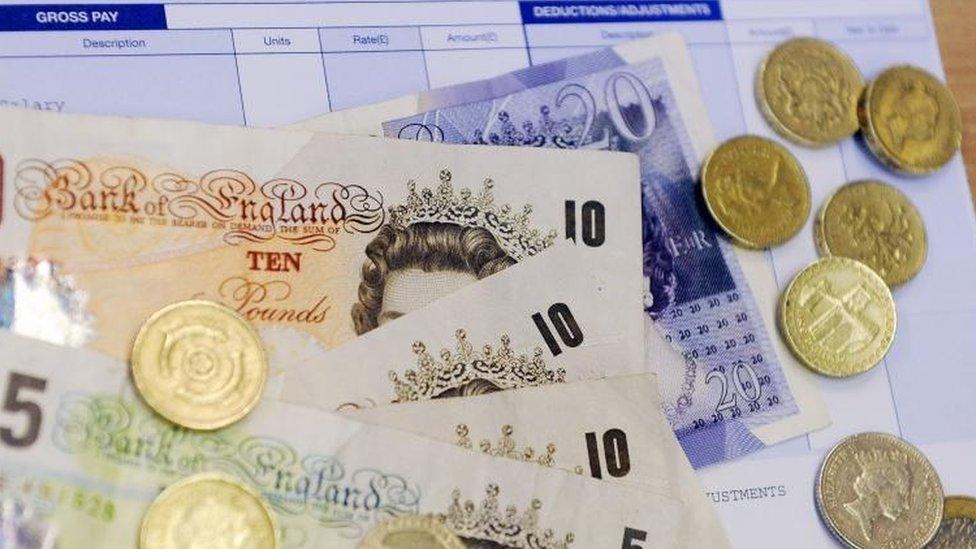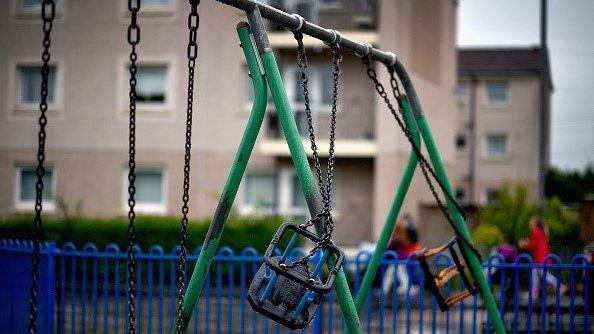Household incomes crept up last year, DWP figures show
- Published

A generational divide in UK households' income growth has been confirmed in the latest government figures - but incomes are little changed in the last year.
Average household income rose by 1.4% in 2015-16 after adjusting for inflation, new data from the Department for Work and Pensions (DWP) shows.
Working-age household incomes have been stagnant since 2007-08 compared with a 10% rise for pensioners.
Yet, 14% of pensioners households are still on low incomes.
The DWP figures also show that in 2015-16, rises in pensioner incomes stalled.

A number of reports and previous data have shown that income growth has been faster among pensioners than working-age people since the financial crisis.
This has led to widespread debate over the future of the triple-lock - a promise made to pensioners that the state pension will rise in line with prices, wages or 2.5%, whichever is highest.
This latest set of figures shows that recently retired pensioners in the UK have seen their incomes rise compared with a decade ago.
Average incomes among this group have risen from £314 in 2005-06 to £357 in the last financial year.
The DWP figures show a regional split, with older people in the South East of England having much higher incomes than those living in Wales and the West Midlands.
Steve Webb, a former pensions minister and now director of policy at Royal London, said: "While there are clearly some pensioners who enjoy good company pensions and have benefited from house price inflation, there are clearly also many who are not in such a fortunate position.
"Any change to policy on state pensions need to take full account of the diversity of experience of pensioners in Britain today, and not simply assume that pensioner living standards will keep on rising."
'Slow growth'
For all UK households, the median average income rose by £8 in a year to £481 a week before housing costs in 2015-16.
This stood at £413 a week after taking housing costs into account, the DWP figures show.
Agnes Norris Keiller, a research economist at the Institute for Fiscal Studies (IFS), said: "Growth in household incomes in 2015-16 was modest but widespread, continuing the pattern seen in recent years.
"The period since the recession has been defined not by sharp rises in inequality or poverty, but historically slow growth in average incomes - in 2015-16 average income for working-age adults was no higher than eight years previously."
Official figures published on Wednesday showed that wage growth had slowed to 2.3% (excluding bonuses) in the three months to the end of January, from 2.6% in the previous three-month period.
- Published15 March 2017

- Published9 March 2017

- Published2 March 2017
